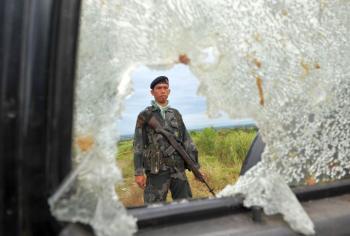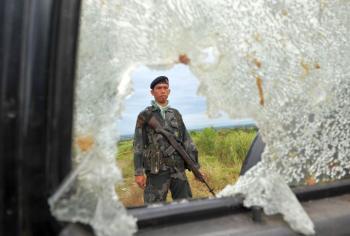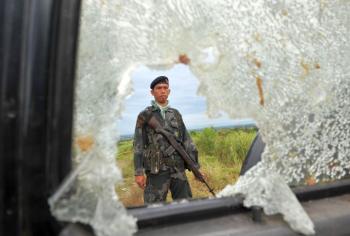After Philippines Massacre, Concerns About Impunity
International media organizations pushing for justice, amidst concerns of impunity.

A military trooper is framed by a hole of a car window, one of the vehicles found at the crime scene where human remains were unearthed from a shallow grave as investigators try to find more bodies, victims of a massacre after gunmen shot at least 57 peop Ted Aljibe/AFP/Getty Images

Charlotte Cuthbertson
Senior Reporter
|Updated:





